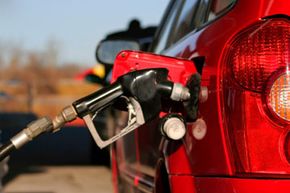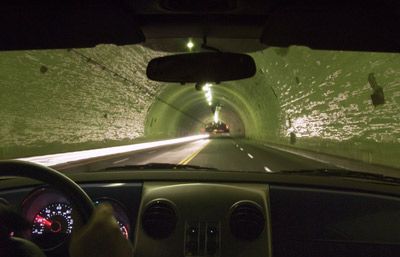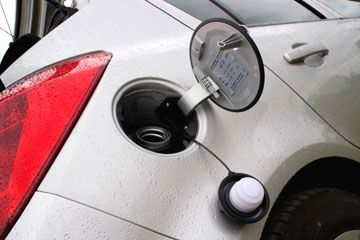Fuel prices are on the rise, and those fill-ups are no trivial expense. Once you leave the station, that gasoline has a strong environmental impact. In the United States, cars and trucks cause more air pollution than any other factor. Motor vehicle emissions are responsible for almost half of the smog in our air, which directly affects our health. In cities, these emissions are linked to respiratory illnesses like asthma and bronchitis.
Switching to a more fuel-efficient vehicle can make a big difference in your car's gas mileage, but not everyone is ready to go out and buy a new car. For drivers who want to save on gas without getting a brand-new vehicle, there are some kits and options to help improve your car's fuel economy.
Advertisement
As fuel prices go up, more of these products are hitting the market, and unfortunately, many of them are very ineffective, and others are straight-up gimmicks. Many fuel additives, for example, tend to be a scam, and the ones that do work may not be very effective. There are also mechanical fuel-saving gadgets out there, but most of those don't do much, and some even reduce fuel economy or are dangerous.
Luckily, there are things you can do to your car that will help you use less gas. Tired of polluting the air and paying too much at the pump? Check out some ways you can mod out your existing car to save fuel.
A few manufacturers have released electric cars, but not everyone can afford a Nissan Leaf. One do-it-yourself solution is converting your gasoline-powered vehicle to an electric. Some ultra-handy car owners have converted their engines from scratch, but for the less mechanically inclined, there are kits that take some of the guesswork out of switching to an electric engine. Electric conversion kits can vary in price, but most cost several thousand dollars, and many companies require that an authorized dealer do the installation.
The downside to going electric is that fully charging the car takes time -- usually several hours -- and electric car owners have to consider their motor's range when planning trips. An electric car can be ideal if you tend to only drive on short, in-town trips. If you're looking at a longer trip, though, you have to plan your trip carefully to pass by charging stations, since most electric motors have a range of 100 to 200 miles (161 to 322 kilometers), and some kit conversions may be even lower than that.
Advertisement



